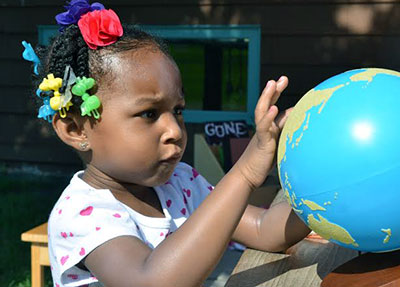A Hub of Expertise and Support
Located in St, Paul Minnesota, MPSAC was founded in 2008 under the insightful leadership of Molly O’Shaughnessy. Molly’s dream was to “get back to Maria Montessori’s original vision.” Unlike Lumin, which operates as a centralized network of schools, MPSAC affiliates are independent, high-performing non-profits who voluntarily join a community of Montessori practice. In addition to Montessori training through MCM, MPSAC provides support services in the form of financial planning and budget development through a partnership with First Children’s Finance, classroom set-up, professional development and mentoring. A partnership with Nienhuis has brought the cost of equipping a prepared environment within reach for the affiliates with a significant price break for MPSAC schools. Cultivating effective affiliations, however, involves much more than a set of services. As Connie Black, Director of Outreach for the Montessori Center of Minnesota and leader of the MPSAC initiative, explains, “this is very intentional process that involves careful listening and sensitive response to needs.”
Like all three other programs, MPSAC identifies relationship as the core of its work. Relationships among community institutions, between families and schools, and most important, between adults and children. Black elaborates, “It’s much more about strengthening those adult-child relationships than it is about informing people about Montessori.” At the same time, Montessori theory and practice serves as the guiding force behind nearly every decision the program confronts. “Authentic,” “honest,” “responsive,” are terms that every member of the community repeats often. The most important embodiment of these terms may occur in the practice of observation.
Again, Black elaborates on the delicate balance of listening and inviting: “It’s a whole lot of intentional listening, a lot of question asking. Rather than observing a relationship and going ‘oh boy do you have problems; let me tell you how to fix this, ’ we just listen. And we watch. And by doing so, we empower our partners to discover for themselves what their questions are. And once they ask, then we have things to offer.” As a Montessori trainer, Black is drawing from a rigorous professional commitment to the principles she describes here: observation, patience, non-intervention. Her training has taught her that these skills allow teachers of very young children to assess readiness and offer lessons based on that assessment. Here she applies those same principles to adult partners, including parents.
Funding for MPSAC’s programs is derived from a blend of private philanthropy, public funds, and tuition revenue, with private philanthropy constituting the largest portion. And because foundation support plays such an important role in the organization’s operation, external evaluation has been a priority from the beginning. In the first year of a three-year evaluation to assess the progress of children, staff and schools within the programs involved, data indicate there is no statistically significant achievement gap by ethnicity, home language or economic status. The data collected also show high levels of alignment between families and Montessori staff in “character development, problem solving and the ability to successfully navigate social and cultural networks.”
Visit the Montessori Center of Minnesota online.
